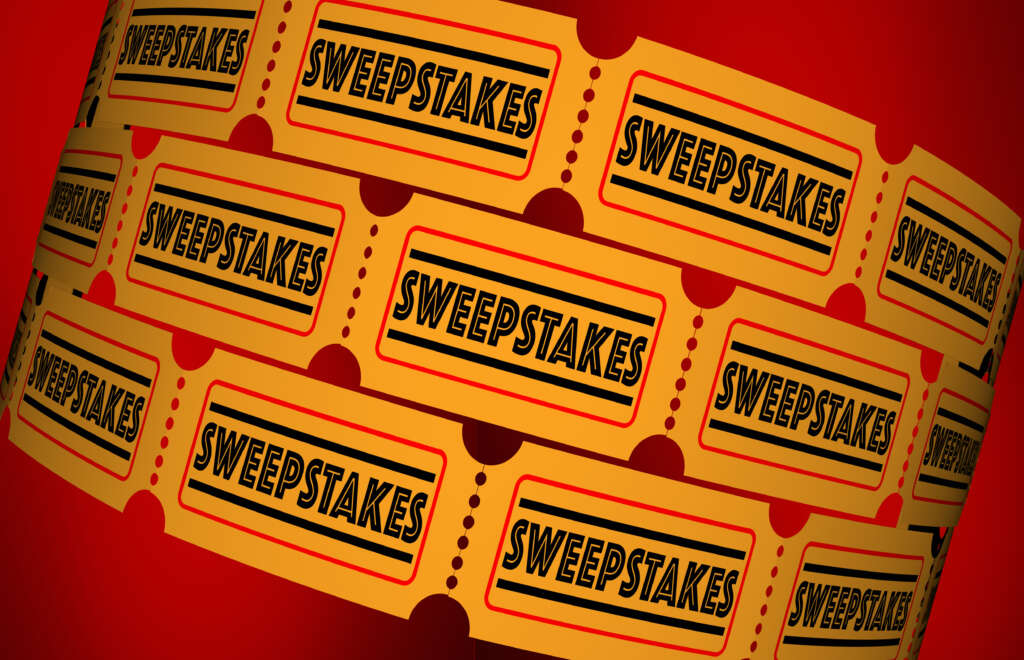The Psychology of Luck: Can You Increase Your Odds of Winning?
Share This Article
You’ve probably noticed some people seem to win everything – from radio contests to grocery store giveaways to scratch-off tickets. Meanwhile, others struggle to catch a break no matter how many sweepstakes they enter. While true luck involves genuine randomness, research shows that certain behaviors and mindsets can dramatically improve your chances of “getting lucky.”
The Science Behind Lucky Behavior
Dr. Richard Wiseman, a psychology professor at the University of Hertfordshire, spent years studying people who considered themselves lucky versus those who felt unlucky. His findings revealed that luck isn’t just about random chance – it’s often about preparation, awareness, and attitude.
Lucky people tend to notice more opportunities around them. They’re the ones who spot the $20 bill on the sidewalk or catch the announcement about free samples at the store. Unlucky people, focused on their phones or lost in worry, walk right past these same opportunities.
This awareness extends to contests and giveaways too. Lucky people develop what researchers call “environmental scanning” – they actively look for opportunities rather than waiting for them to appear.
Strategic Approaches That Actually Work
Enter Multiple Categories
Smart sweepstakes enthusiasts know that diversifying increases their odds. Instead of entering only big-ticket prizes like cars or vacations, they also target smaller, local contests with fewer participants.
Local radio stations often have contests with just hundreds of entrants, compared to national sweepstakes that might attract millions. Your local grocery store’s monthly drawing could have better odds than a major brand’s social media contest.
Timing Makes a Difference
Many contests receive the most entries in the first few days after launch and again right before the deadline. Entering during the middle period – when enthusiasm has died down but the deadline hasn’t created urgency – can improve your chances.
For daily entry contests, entering consistently matters more than timing. Set reminders to enter during less popular hours, like Tuesday mornings or Thursday evenings.
The Mindset Component
Optimism vs. Realism
Lucky people maintain what psychologists call “optimistic realism.” They believe good things can happen to them while understanding that most contests have long odds. This balance keeps them motivated without becoming disappointed.
Unlucky people often fall into two traps: either giving up too quickly because they assume they’ll never win, or becoming bitter when they don’t win immediately. Both approaches reduce their actual chances of success.
Persistence Pays Off
Research from Sweepstakes Advantage shows that regular sweepstakes participants typically win their first meaningful prize after 3-6 months of consistent entering. This timeline helps explain why some people feel “unlucky” – they’re simply not staying in the game long enough.
Professional sweepstakes enthusiasts often treat it like a part-time job, spending 30-60 minutes daily entering various contests. Their success comes from volume and consistency, not magical luck.

Practical Strategies for Better Odds
Focus on Skill-Based Contests
While pure luck contests (like random drawings) can’t be influenced, skill-based contests offer more control. Photo contests, recipe submissions, and creative writing challenges reward preparation and effort.
These contests often have fewer entrants because they require effort. A recipe contest might get 200 entries compared to 20,000 for a simple “like and share” giveaway.
Build Your Contest Intelligence
Successful contest players track their entries and results. They notice patterns: which types of contests they tend to win, which entry methods work best, and which brands run regular promotions.
Apps like Sweepstakes Advantage and websites like Sweepstakes Fanatics help organize this information and alert you to new opportunities.
Leverage Social Media Strategically
Many people enter Instagram and Facebook contests but ignore smaller platforms. Twitter contests often have lower entry rates, and Pinterest contests can be overlooked entirely.
LinkedIn contests targeting professionals might have just dozens of entries. Platform-specific contests on apps like TikTok or Reddit can offer surprisingly good odds.
The Numbers Game
Understanding probability helps set realistic expectations. A contest with 10,000 entries gives you a 1-in-10,000 chance of winning. Enter 50 similar contests, and your odds of winning at least one prize improve significantly.
This is why successful sweepstakes enthusiasts focus on quantity alongside quality. They might enter 20-30 contests weekly, knowing that consistent participation across multiple opportunities increases their overall success rate.
Building Lucky Habits
Create a Routine
Set aside specific times for contest entry. Many successful players check contest sites during their morning coffee or evening TV time. This consistency ensures they don’t miss opportunities.
Stay Organized
Keep track of entry deadlines, rules, and requirements. Missing a deadline or failing to follow rules eliminates your chances entirely. Simple spreadsheets or apps can prevent these costly oversights.
Network with Other Participants
Online communities like Sweepstakes Advantage Forum share tips about new contests and winning strategies. Learning from experienced participants can accelerate your learning curve.
Managing Expectations
Remember that even skilled players win a small percentage of contests they enter. The key is finding contests you enjoy entering regardless of outcome. If you love trying new products, product sampling contests make sense. If you enjoy creative challenges, photo contests might be ideal.
Lucky people often say they feel grateful for small wins – free samples, discount codes, or gift cards – rather than focusing only on grand prizes. This attitude keeps them motivated and helps them notice more opportunities.
The psychology of luck reveals that while we can’t control random chance, we can control our preparation, awareness, and persistence. Those seemingly “lucky” people around you probably aren’t magical – they’re just playing the game more strategically than everyone else.
Key Takeaways
• Lucky people actively scan their environment for opportunities rather than waiting for them to appear
• Diversifying across multiple contest types and platforms improves overall odds
• Consistency and persistence matter more than perfect timing
• Skill-based contests offer more control than pure luck contests
• Tracking entries and results helps identify successful patterns
• Small wins and consistent participation build momentum toward bigger prizes


